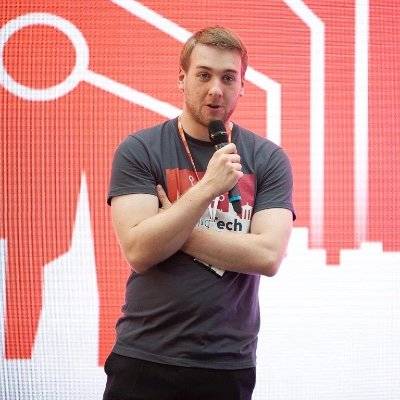7 Best ABA Data Collection Software for Clinics in 2026
We tested over 15 ABA data collection platforms and found 7 that save time on data entry, reporting, and tracking. Plus, these platforms maintain HIPAA compliance.
In this article, we’ll walk you through the 7 best ABA data collection software options for your clinic in 2026.
7 best ABA data collection software: TL;DR
Note: Starting price refers to publicly listed price or benchmark as of October 2026 (where available). Actual cost may vary.
1. Passage Health: Best ABA data collection software overall

What it does
Passage Health is an all-in-one EMR/EHR software for autism care providers that brings data collection, scheduling, billing, and reporting into one unified system.
Who it's for
Growing ABA clinics, multi-disciplinary practices, schools, and other ABA organizations that want to reduce the number of disconnected tools they use.
Key features
- All-in-one unified platform: Access clinical tools and practice management in one system with one login.
- Mobile app for real-time data collection: Capture session notes and clinical data during therapy sessions with auto-syncing, so you never lose data.
- Automated treatment reports and graphing: Generate customizable treatment reports and visualize client progress with charts and graphs.
- Simple scheduling: Manage appointments with easy setup, staff reassignments, and color-coded calendar views.
- Electronic billing and claims management: Automatically generate and submit claims to insurance to reduce billing errors and get paid faster.
Pros
- 1:1 expert onboarding, in-depth support and set-up
- Simple, intuitive interface built for efficiency
- Reliable real-time updates and data sync
- Scales from small clinics to growing practices
- Responsive support that drives quarterly product improvements
Cons
- Newer to the market compared to legacy systems
- Requires consultation for pricing
Pricing
By quote. Contact Passage Health for custom pricing based on your practice size and needs.
Bottom line
If you're juggling multiple logins and constantly losing data between systems, Passage Health fixes that. One platform handles everything from data collection to billing, and setup takes days, not weeks.
You can save hours every week with scheduling and automated reports. The time you'll get back means you can take on more clients instead of drowning in admin work.
2. Hi Rasmus: Best for teams prioritizing data flexibility
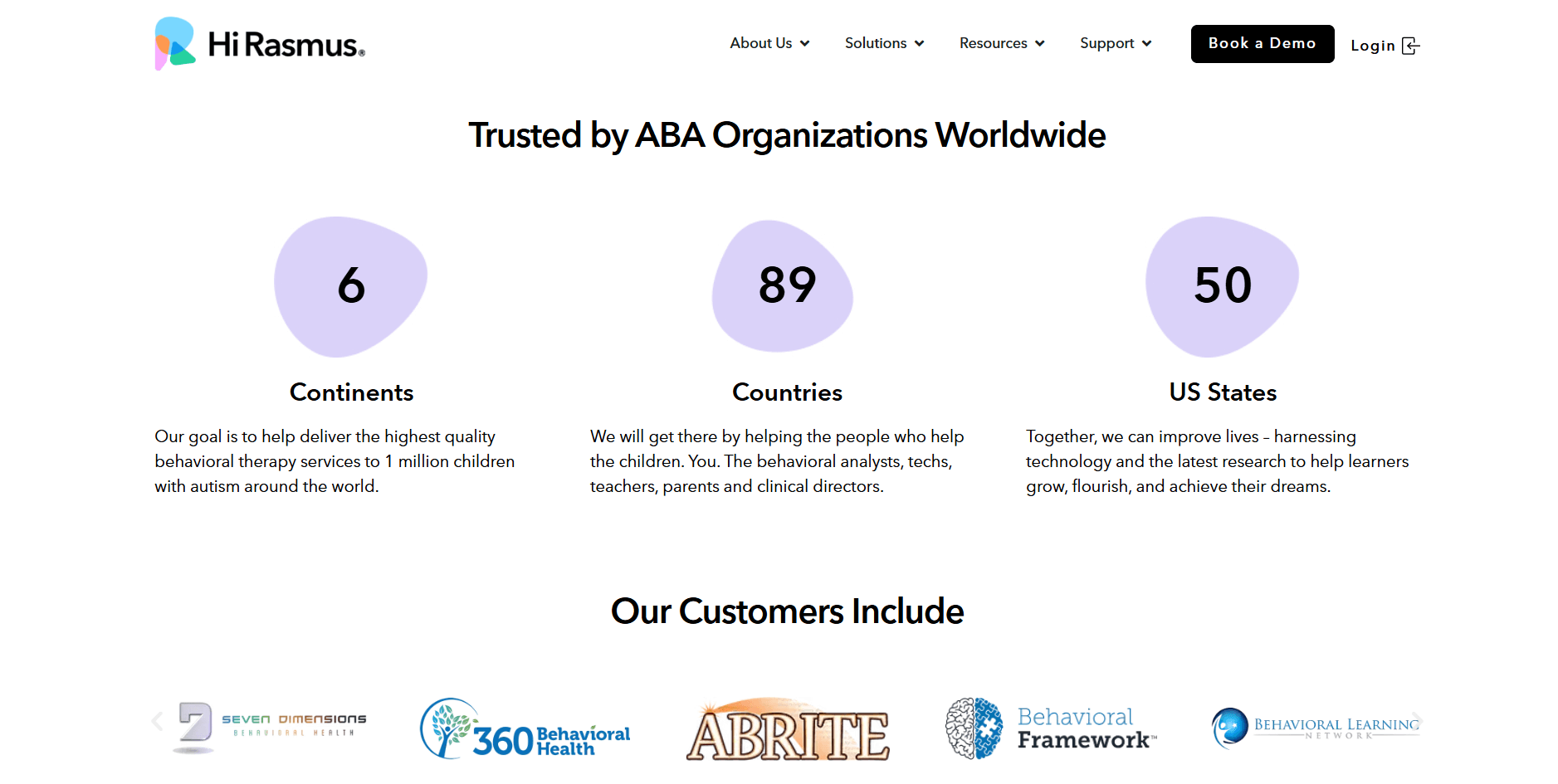
What it does
Hi Rasmus focuses on comprehensive clinical data collection with extensive data types, customizable workflows, and strong outcomes reporting.
Who it’s for
Teams that want depth and customization over simplicity, and are willing to integrate with separate practice management systems for scheduling and billing.
Key features
- Comprehensive data collection types: Supports discrete trials, task analyses, interval recording, duration, rate, ABC data, and sets of targets.
- Customizable session note templates: Add custom templates to help staff write thorough, quality session notes during sessions.
- Automated signature workflows: Required signers receive notifications when notes are ready, with geolocation captured at start, end, and signature points.
- Offline and online data collection: Staff can collect data without internet access via mobile or browser, with automatic syncing.
- Group session data capture: Providers can collect data on multiple learners simultaneously in group therapy settings.
Pros
- Strong clinical flexibility and depth
- Advanced prompt level customization
- Offline and asynchronous data collection, including video-based supervision
- Unlimited programs and targets per learner
Cons
- Requires integration with a separate practice management system
- Complex navigation requires many clicks
- Integration challenges cause data problems
Pricing
By quote, with Standard and Premium client license types.
Bottom line
Hi Rasmus is a strong fit if clinical depth matters more than simple operations. You’ll get more data collection types and customizable options, plus asynchronous video supervision. It lets BCBAs review and score sessions on their own time.
But you'll need a separate system for scheduling and billing (most teams pair it with Aloha ABA), which means double logins and potential integration headaches as your practice grows.
3) Motivity: Best for clinics that want customization options
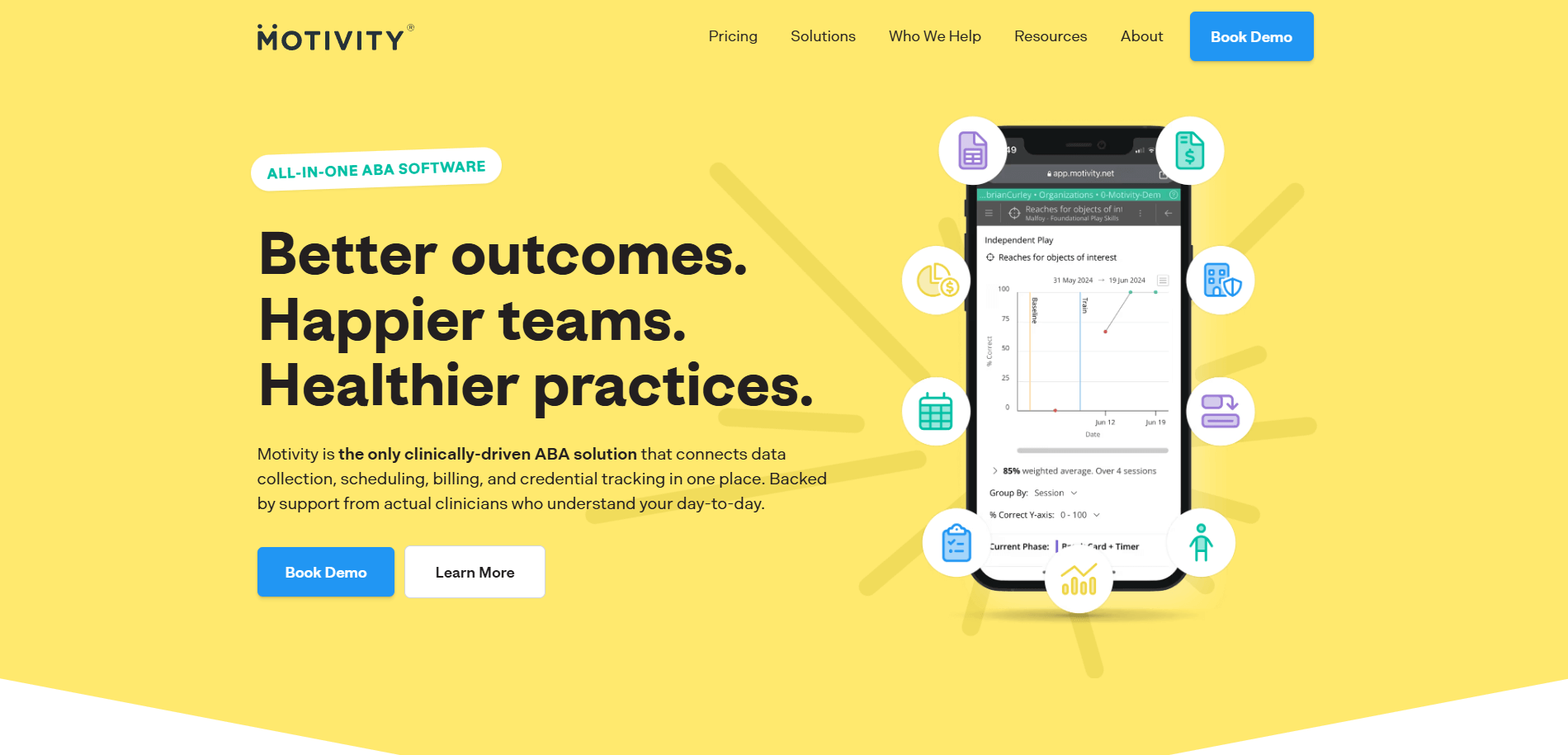
What it does
Motivity is an ABA software that offers clinical data collection with optional practice management tools.
Who it’s for
ABA clinics that want to start with clinical tools and have the option to add scheduling, billing, and credentialing without switching platforms later.
Key features
- Ready-to-use template library: Choose from over 370 pre-built templates for academic skills (reading, language, math), plus customizable program templates.
- Highly customizable program builder: Build programs from templates or scratch with customizable phases, prompts, and measurement types.
- Real-time collaborative data collection: Data appears instantly for all users without refreshing, so supervisors can monitor sessions live.
- Multi-learner group session support: Collect data on multiple learners by toggling between session tabs, ideal for group or class settings.
- Automatic note and report generation: Notes auto-populate with learner, staff, and session data, with auto-import of program data to reports.
Pros
- Research-backed and clinically validated by NIH
- Exceptional clinical depth and flexibility
- Ability to scale by adding practice management tools
- Access to unlimited users/roles and unlimited data storage
Cons
- Steeper initial learning curve
- Time investment for configuration and customization
- Requires separate system or integration for some workflows
- Some advanced practice management features are add-ons
Pricing
From $24 per learner per month for data collection, plus an all-in-one option that lets you add scheduling and billing when you're ready. However, the price is only for the base, and adding more features will cost more.
Bottom line
You'll get NIH-backed clinical tools with 370+ templates and real-time data collaboration. The program builder gives you flexibility that many other platforms don’t.
Motivity setup takes more configuration time than simpler platforms. If you're only using clinical features now, you'll still face the same integration issues that other clinical-only tools create.
4) Rethink Behavioral Health: Best for mid-sized teams that want training and comprehensive analytics
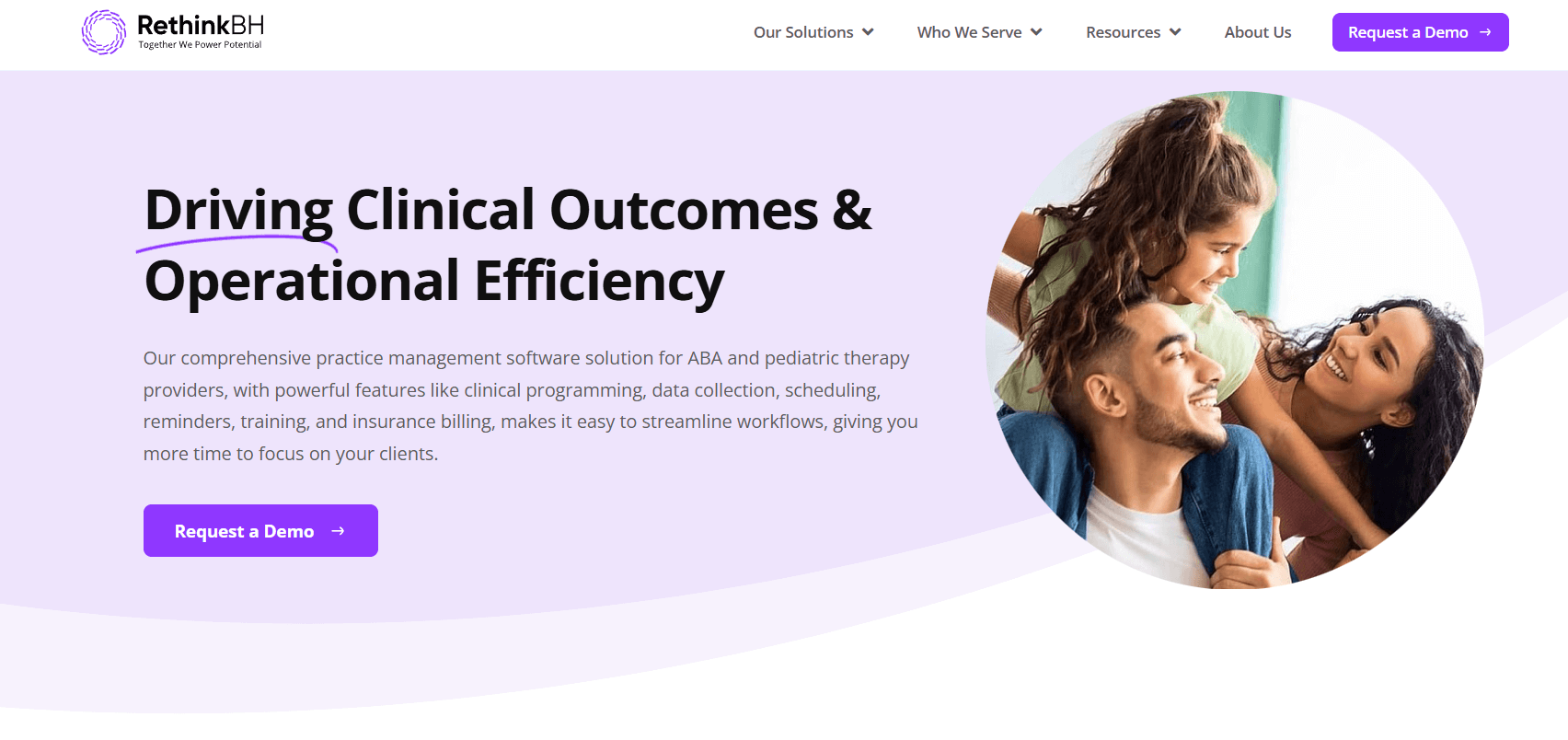
What it does
RethinkBH provides a full-suite ABA platform that combines data collection, scheduling, billing, analytics, and RBT training.
Who it’s for
Start-up to enterprise ABA practices and behavioral health organizations that want consolidated clinical tools, operational analytics, staff training, and billing services.
Key features
- Video-based curriculum library: Access over 1,500 customizable treatment goals with embedded video training and teaching materials.
- Real-time mobile and offline data collection: Mobile app supports frequency/rate, duration, opportunity-based, interval, and task analysis data.
- Automated graphs and progress visualization: Clinical dashboards provide micro- and macro-level insights with automated reports.
- HIPAA-compliant parent portal: Caregivers can track child progress, sign documents, and share documents with the care team.
- Training resources: Includes built-in video training for staff and caregivers, with an optional interactive RBT training program.
Pros
- Most comprehensive training ecosystem
- Strong analytics and operational dashboards
- Unified clinical and practice management systems
- Family engagement tools
Cons
- Users report reliability and technical issues
- Scheduling lacks features like staff availability
- Challenges with billing partner integration
- Issues with support response and unsolved concerns
Pricing
By quote.
Bottom line
RethinkBH offers analytics, billing, and clinical tools under one roof. The platform delivers 1,500+ treatment goals with video training, plus operational dashboards in one system.
Users report issues with data saving and accessing support. The Tebra/Kareo billing integration brings the same payment headaches other platforms face.
5) Ensora Health: Budget-conscious clinics wanting to start small with modular tools.
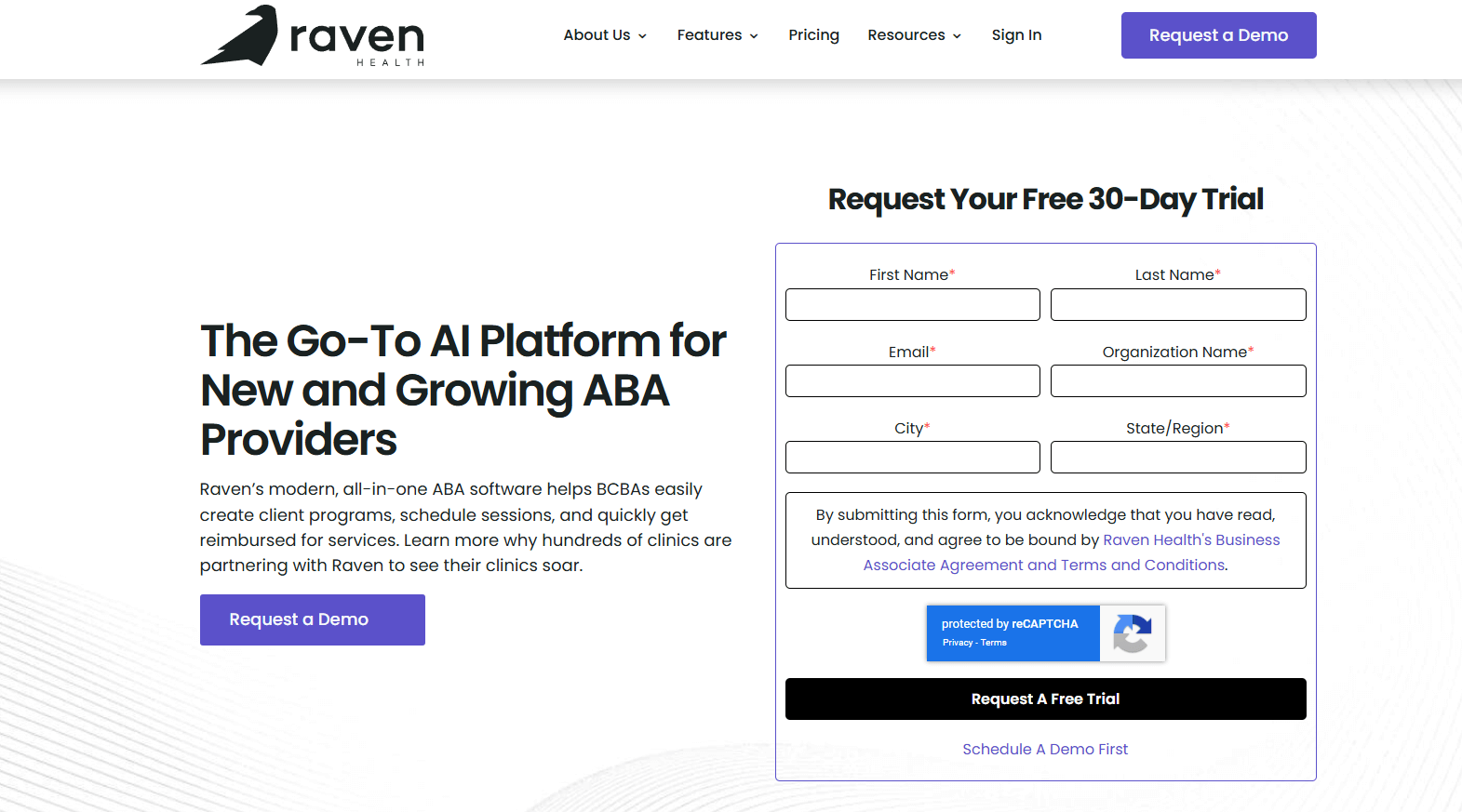
What it does
Ensora offers an ABA suite that combines data collection with practice management features, including scheduling, billing, and authorization tracking.
Who it's for
Clinics that want to pick specific tools rather than everything at once, especially those watching their budget.
Key features
- Modular pricing options: You can buy just data collection, practice management, or both modules. That way, you pay only for the tools you actually use.
- Offline data collection: Collect data without internet in the field, then sync automatically when you're back online.
- Automated progress tracking: Your therapy goals update automatically from the baseline data as you go through sessions.
- Customizable graphing: You can view data in graphs and charts by instructor, time of day, trial counts, or skill mastery with real-time updates.
- BCBA-built workflows: Ensora was created by BCBAs who understand ABA therapy and how clinics actually work.
Pros
- Start small with one module and add more as your practice grows
- Used by 70,000+ BCBAs and RBTs with a proven track record
- Works anywhere with offline mode for home and community sessions
Cons
- App crashes often, especially when adding new programs or after updates
- Mobile app looks and works differently than desktop, confusing staff who use both
- Pricing for separate modules adds up quickly
Pricing
The Ensora mental health platform starts at $29 per therapist per month for their clinical-only features. The rehab therapy suite starts at $119 per user per month, and RCM services require you to request custom pricing.
Bottom line
Ensora lets you build your system piece by piece, which gives you flexibility. The offline mode and BCBA-designed features show they understand ABA.
But managing separate modules can create the same headaches that all-in-one platforms like Passage Health solve. Plus, the frequent crashes and confusing interfaces may cost you more time than you save on price.
6) Raven Health: Best for mobile-first ABA clinics with offline data needs
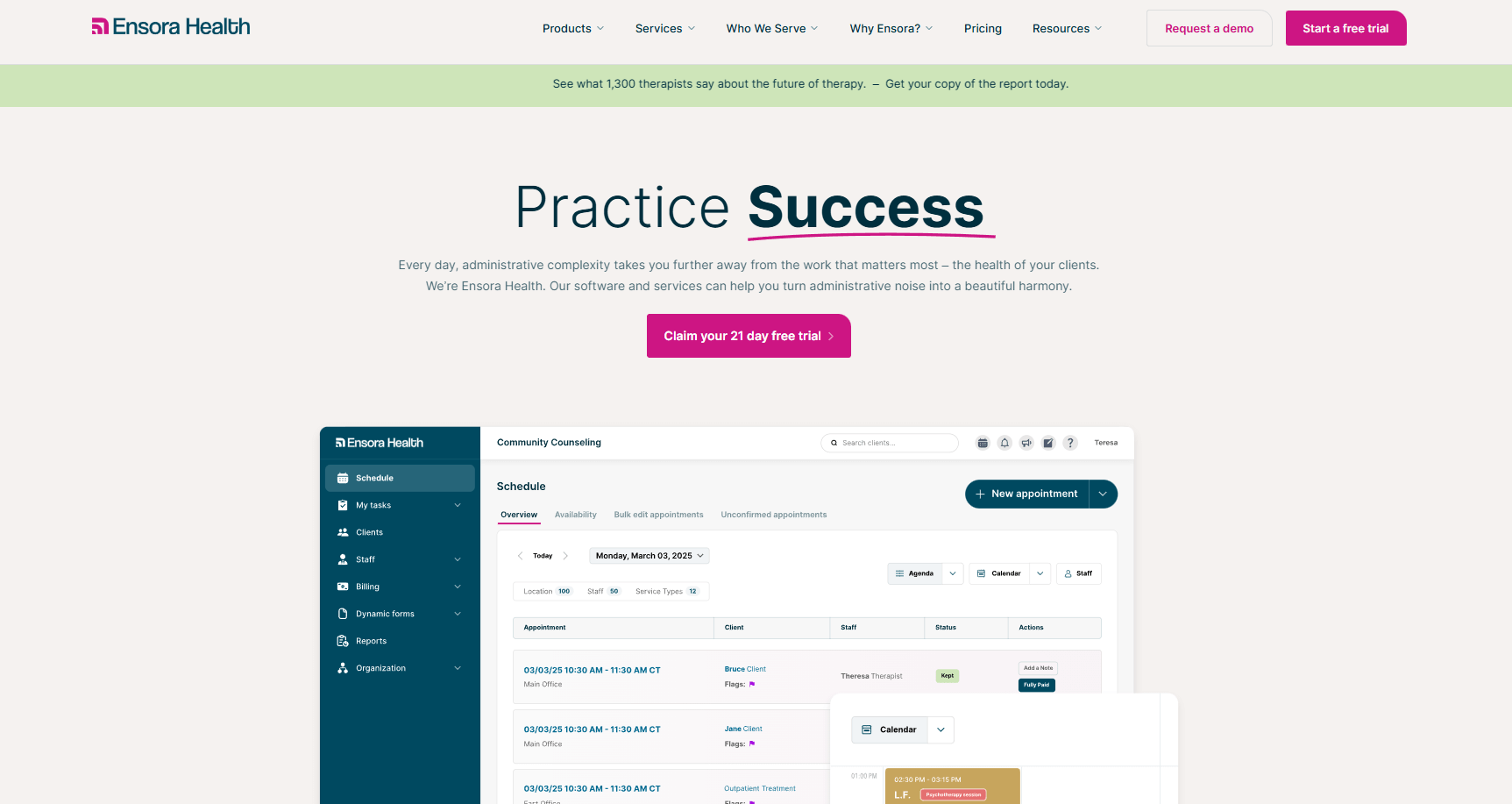
What it does
Raven Health is built for therapists who work in homes and schools. You collect data on your phone or tablet during sessions, even with no internet, and it automatically syncs the moment you're back online.
Who it's for
Small to mid-sized ABA clinics (clinic-, home-, or school-based) that need fieldwork flexibility and want data capture, scheduling, and billing in one tool.
Key features
- Mobile-first data collection with offline mode: You can collect session data anywhere without interruption; automatic syncing prevents data loss.
- Real-time clinical dashboards and graphing: You get customizable templates, interactive progress graphs, and tracking updates as data is entered.
- Integrated scheduling and billing: You get drag-and-drop appointment management, automated claims submission, and multiple billing models in addition to data collection features.
- Quick staff onboarding: BCBAs can learn to use the tool in a short while with minimal training.
- HIPAA-compliant with audit-ready workflows: There’s secure encryption, customizable notes aligned to payer requirements, and audit tracking for claim disputes.
Pros
- Integration of data collection and billing
- Truly mobile-first with offline capability
- Transparent entry-level pricing and flexible billing options
- Faster team adoption with short learning curves and responsive customer support
Cons
- No transparent pricing for expansion (multi-site and advanced features)
- The system is missing some core operational features; feels too clunky and not built out well
- Complex reporting and treatment planning features aren't as intuitive as basic data collection
Pricing
Data Collection Essentials: $29 per user per month with a $500 implementation fee.
Managed Billing: 5% of your monthly claims paid.
Bottom line
Raven Health is ideal if your team works mostly in homes or schools and needs offline data collection that automatically syncs to billing. The mobile-first design and quick onboarding make it great for practices with high staff turnover.
But if you're already using separate tools that work well, switching might be more trouble than it's worth. And if you're running multiple clinics or need custom workflows, you might be better off with a bigger platform.
7) CentralReach: Best for multi-location ABA providers
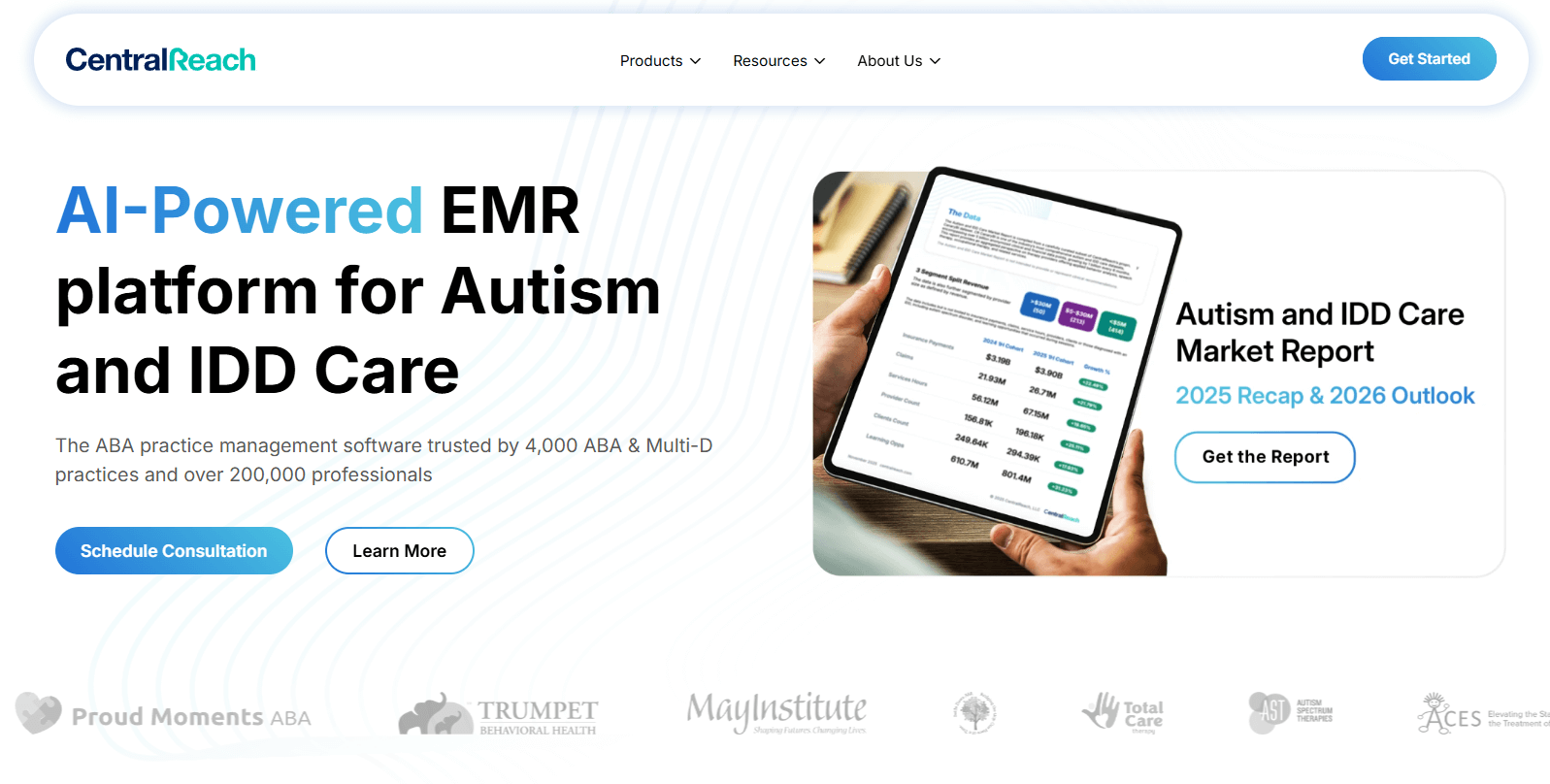
What it does
CentralReach is the platform for big practices. It handles data collection on mobile, scheduling, billing, payroll, and staff management all in one place. It works offline and syncs when you reconnect, plus you get built-in analytics and compliance tracking.
Who it's for
Multi-site ABA providers and large multidisciplinary practices that need to manage complex operations across multiple locations.
Key features
- CR Mobile app with offline data collection: Therapists collect session data without internet, syncs automatically when reconnected.
- Unified scheduling with smart authorization tracking: Manage appointments across multiple locations and staff, with built-in checks for insurance authorizations so you don't overbill.
- Integrated billing that feeds directly from clinical notes: Session notes convert to claims automatically, reducing manual entry and billing errors.
- Payroll management inside the platform: Track staff hours, manage timesheets, and process payroll without switching to another tool.
- Advanced dashboards and reporting for multi-location oversight: See clinic performance, revenue, and therapist productivity across all your locations in real time.
Pros
- Handles everything a big practice needs in one system
- Trusted by thousands of large ABA providers and has been in the market for years
- Smart integrations with insurance and billing partners improve claims processing
Cons
- No public pricing available
- Long setup because there's so much to configure and customize
- Overcomplicated, outdated, hard to use, and hard to train teams
Pricing
By quote. Contact CentralReach for enterprise pricing.
Bottom line
CentralReach works well for multi-location practices that need enterprise-level control.
But if you're a growing clinic, the implementation burden and high cost aren’t ideal. Without dedicated IT staff or other resources, simpler and more intuitive systems are a better choice.
How we tested these ABA data collection apps
We focused on tools that meet the data collection needs of most ABA practice owners. Some of the features include:
- Data capture depth and reliability: We looked for tools that support common ABA data types and enhance visualization. We chose tools that offer real-time syncing and offline notes where applicable.
- Works with a practice management system: We checked for scheduling, billing, and analytics features connected to session data. We noted whether this was through an all-in-one platform or the integration of multiple tools.
- Data security: We looked for HIPAA-compliant software only.
- Scaling potential: We noted whether each tool suits start-ups, growing practices, or enterprise organizations.
- Onboarding and support: I highlighted platforms that have a smoother onboarding process. Plus, platforms with present, timely support and set-up resources that can cut down your implementation timeline.
Our process
We analyzed each platform by:
- Reading user reviews from multiple sources
- Analyzing vendor documentation and support materials
- Testing free trials and demos, where available
- Comparing stated features against user experiences
- Verifying pricing information from multiple sources
We prioritized actual user experiences over marketing claims and looked for patterns in reviews rather than isolated opinions.
Which ABA data collection software should you choose?
The truth is, the best data collection software is the one that meets your needs and simplifies data collection and reporting processes for your clinic.
Choose Passage Health if you:
- Want a modern, user-friendly interface that staff will enjoy using
- Need to reduce time spent on reports and scheduling
- Value knowledgeable onboarding and proactive support
- Run a growing practice that needs both clinical and practice management tools
- Want a unified system that removes the need for multiple platforms
Choose:
- Hi Rasmus if you prioritize clinical depth over operational simplicity and plan to integrate with separate practice management software, like Aloha ABA.
- Motivity if you want the flexibility to start with clinical tools, then add scheduling, billing, or credentialing modules as your practice grows.
- RethinkBH if you value integrated training and operational analytics, and can navigate support routing and billing integration challenges.
- Ensora if you want modular practice management plus data collection with HIPAA messaging and flexible plan design.
- Raven Health if you want clear graphs and reports that turn daily data into progress summaries you can share with families or supervisors.
- CentralReach if you run multi-site operations and need robust enterprise PM with mobile data and offline options.
Avoid:
- Complex platforms like CentralReach, if you have limited technical support
- Tools with poor onboarding support, if you need faster onboarding
- Enterprise platforms, if you want simple, budget-friendly solutions
Our final verdict
No single platform works for every clinic, but some fit most practices better than others.
After testing these platforms, Passage Health is the best overall choice for most ABA clinics in 2026. Yes, it's newer than legacy competitors, but that's actually an advantage. It solves the real problems clinics face today without the split systems older platforms are stuck with.
For specialized needs, Hi Rasmus offers great clinical customization, Motivity gives you modular growth with add-ons, and CentralReach remains the enterprise standard.
But if you're tired of clunky, disconnected tools, Passage Health delivers clinical and operational simplicity.
Start your search with Passage Health
Passage Health consistently saves practices hours every week on scheduling and reports.
Our platform was built with input from over 100 ABA providers, so our team understands both clinical and practice management needs.
Book a demo to see how Passage Health saves practices hours every week on data collection and reporting. That’s time you can put toward growing and serving your clients.
Frequently asked questions
What is the best ABA data collection software for clinics?
Passage Health is the best overall ABA data collection software for most clinics in 2026. For specialized needs, CentralReach handles enterprise operations, Hi Rasmus offers deep clinical customization, and Motivity supports scaling with add-on tools.
How much does ABA software cost on average?
ABA software pricing ranges from $20-$100 per learner per month, depending on features. Many vendors require custom quotes.
Which ABA data collection app works best for small practices?
Passage Health works best for small practices. It offers fast setup and an intuitive interface that requires minimal training.
Motivity is another strong option with transparent starting prices ($24/learner/month) and the flexibility to add features as you grow.
Can ABA software help with insurance billing?
Yes, ABA software can improve insurance billing through automated claim submission and payment tracking. Passage Health includes integrated billing and claims management, while platforms like Motivity and RethinkBH offer billing modules or optional RCM services.
Is Passage Health suitable for schools and multi-disciplinary organizations?
Yes, Passage Health works for schools, multi-disciplinary practices, and various organizational structures beyond traditional ABA clinics.
The unified platform adapts to different service delivery models, whether you're running a school-based program or managing multiple service types.
References
Behavior Analyst Certification Board. (2024). Ethics code for behavior analysts. https://www.bacb.com/ethics-information/ethics-codes/
Behavioral Health Business. (2026, May 19). Passage Health reels in $8M for all-in-one ABA software. https://bhbusiness.com/2026/05/19/exclusive-passage-health-reels-in-8m-for-all-in-one-aba-software/
CentralReach. (2024). Best ABA and multidisciplinary software solution for Autism & IDD Care. https://centralreach.com/solutions/enterprise/
Dixon, M. R., Paliliunas, D., Barron, B. F., Schmick, A. M., & Stanley, C. R. (2021). Randomized controlled trial evaluation of ABA content on IQ gains in children with autism. Journal of Behavioral Education, 30(3), 455-477. https://doi.org/10.1007/s10864-019-09344-7
Ensora Health. (2026). ABA suite pricing and features. https://ensorahealth.com/pricing/aba-suite/
Hi Rasmus. (2026). Hi Rasmus: The leading clinical platform for ABA. https://hirasmus.com/
Leaf, J. B., Cihon, J. H., Leaf, R., McEachin, J., Liu, N., Russell, N., ... & Khosrowshahi, D. (2022). Concerns about ABA-based intervention: An evaluation and recommendations. Journal of Autism and Developmental Disorders, 52(6), 2838-2853. https://doi.org/10.1007/s10803-021-05137-y
Motivity. (2026). ABA practice management software. https://www.motivity.net/features/aba-practice-management
Passage Health. (2026). Passage Health: Help the autism community and your team thrive. https://www.passagehealth.com/
Raven Health. (2026). Best ABA software for data collection, billing, and scheduling. https://www.ravenhealth.com/
Rethink Behavioral Health. (2026). ABA software solutions for large and enterprise practices. https://www.rethinkbehavioralhealth.com/enterprise-practices/
SelectHub. (2026). Best ABA software comparison & reviews 2026. https://www.selecthub.com/c/aba-software/
Software Advice. (2026). Best Applied Behavior Analysis Software of 2026. https://www.softwareadvice.com/mental-health/aba-comparison/
U.S. Department of Health & Human Services. (2023). HIPAA for professionals. https://www.hhs.gov/hipaa/for-professionals/index.html


